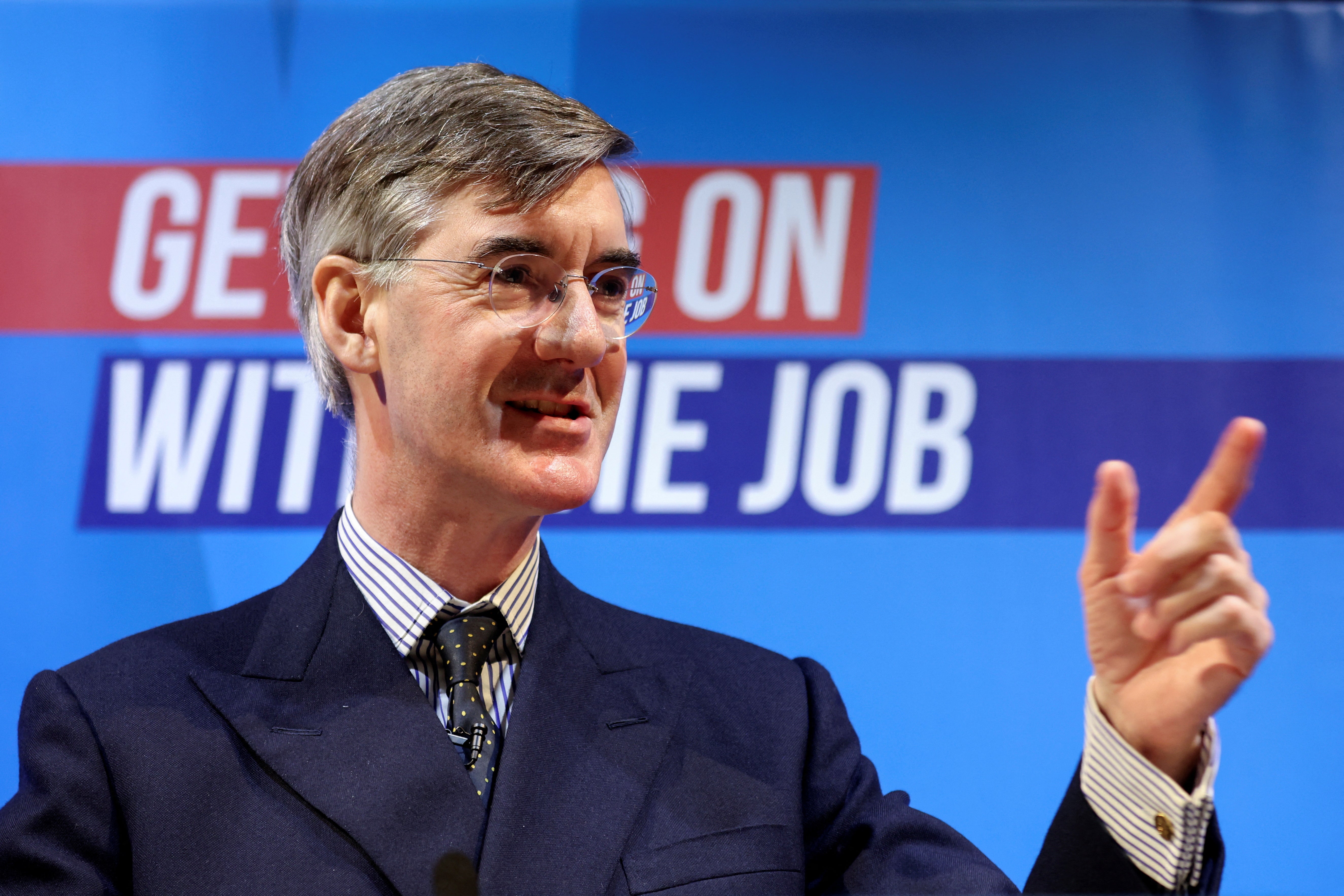Jacob Rees-Mogg promotes the opportunities of ‘not getting Brexit done’
Editorial: The government has accepted that there is an economic cost to leaving the EU. This is progress of a sort

It has come to something when Jacob Rees-Mogg, minister for “Brexit opportunities” in Boris Johnson’s cabinet, sounds like an Independent editorial.
But on Thursday, when Mr Rees-Mogg announced that planned border checks on food coming to the UK from the European Union had been scrapped, he said the controls “would have been an act of self-harm”.
In a written statement, he said: “The remaining import controls on EU goods will no longer be introduced this year – saving British businesses up to £1bn in annual costs.” In other words, not getting Brexit done would save British consumers a significant amount of money.
When Mr Rees-Mogg’s statement is read alongside the speech delivered by Lord Frost, the prime minister’s chief Brexit negotiator, the previous day, it seems that the Brexiteers have finally given up on the pretence that leaving the EU would do anything other than impose higher costs on the British people.
Lord Frost said that in October 2019, he and Mr Johnson “faced a choice – take this deal and sort out the detail in 2020, or fail to deliver Brexit on 31 October. We decided the lesser risk was to push the deal through and trust we could sort out the detail with the EU later.”
So they knew the deal would have to be renegotiated later, but they were desperate to have a deal – regardless of “the detail”, and knowing that it was not in fact “oven ready” – to get them through an election and out of the EU.
Almost the moment the trade deal was signed, completing our departure on 1 January last year, the government started demanding to renegotiate the Northern Ireland protocol – the part of the original withdrawal agreement that set out special rules to keep an open border with the Republic of Ireland.
Now, Mr Rees-Mogg has announced that the border controls for goods coming into the rest of the UK from the EU, which are the consequence of Brexit, will not after all be imposed. The fig leaf to cover this retreat is that we will move to a wholly digital system of border control in due course – and a bill is expected in the Queen’s speech shortly that will make the UK the first major economy to allow electronic trading documents.
In the meantime, we shall remain in the peculiar position of allowing goods to come into the UK without being checked, while goods going the other way will be subject to normal EU controls.
Mr Rees-Mogg tried to put a brave face on this humiliation by arguing: “Free trade is hugely advantageous to consumers.” Usually, however, free trade implies the lifting of restrictions on both sides, rather than the provision of an advantage to traders in other countries while handicapping exporters in our own.
What the government seems now to be admitting is that the damage we inflict on ourselves by this asymmetrical trading relationship is less than the damage that would be inflicted by doing Brexit properly. This, we suppose, is a kind of progress.
The Independent has always accepted that there was a case to be made for not wanting to be part of the political structures of the EU. We recognised that the debate about sovereignty was a genuine one. For us, the economic benefits of EU membership outweighed the loss of sovereignty, which we thought was largely notional anyway.
To keep up to speed with all the latest opinions and comment sign up to our free weekly Voices Dispatches newsletter by clicking here
For those who wanted to leave, though, it was quite reasonable to argue that the economic costs were a price worth paying for sovereignty. What was never reasonable was to pretend that there would not be significant economic costs, especially in the short and medium term.
In our view, these costs could be mitigated if we were part of the EU customs union, which would be possible without rejoining the political structures of the union, but that option was destroyed by the radicalised Eurosceptics whose support Mr Johnson needed to become prime minister.
If he and Mr Rees-Mogg are prepared to admit that Brexit was an act of economic self-harm, perhaps there is now a chance that they could see sense on this issue.






Join our commenting forum
Join thought-provoking conversations, follow other Independent readers and see their replies
Comments